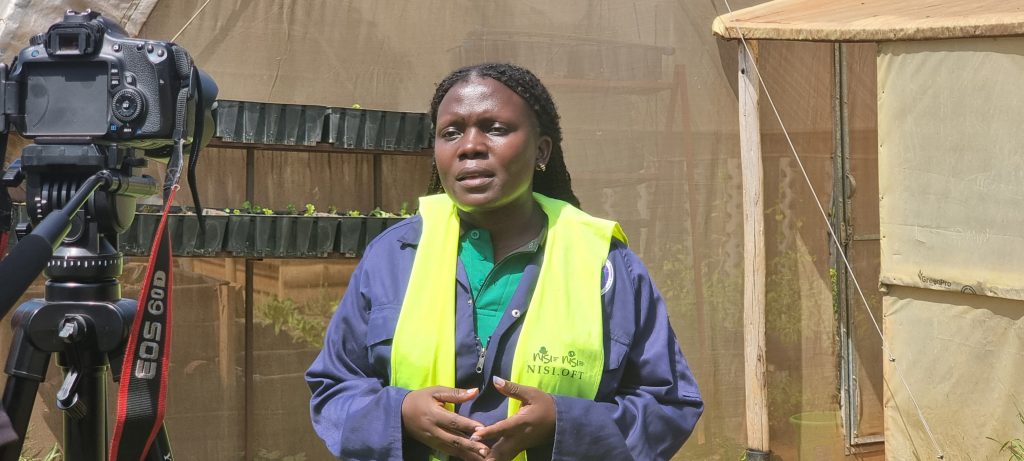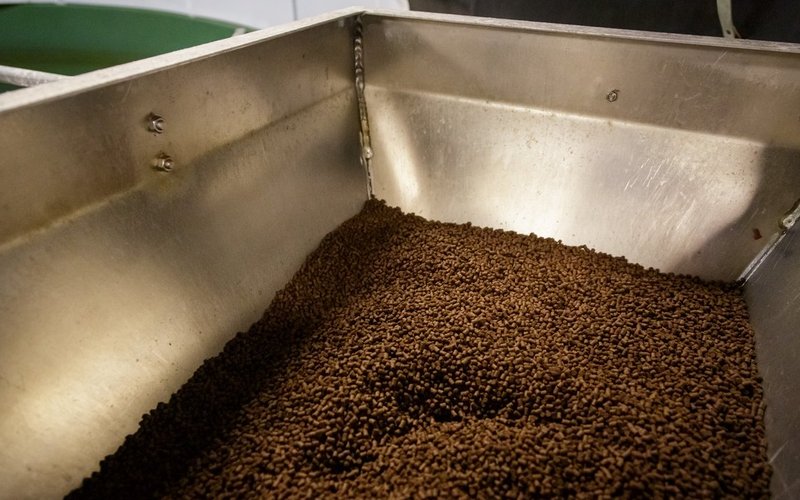By Ramathan Ssenyonga
Fish farmers and dealers have called upon the Government of Uganda to intervene in fish feeds production. The stakeholders complain that the feeds on the market are sub-standard and lead to stunted growth, affecting the profitability of fish farming.

Speaking to journalists at Nsambya in Uganda’s capital Kampala, Josephine Materfu , the director at Nisi Organic Farm Tech said poor fish feeds are incapacitating farmers as they cannot even recover the capital invested in fish farming.
She was receiving fish fingerings and fish feeds from National Agriculture Advisory Services (NAADS) , as the government continues to support the fish sector by promoting aquaculture (rearing fish in ponds) to provide an alternative source of fish in the country.
‘’These projects and programs are part of the government’s efforts to promote sustainable fisheries management, enhance fish production, improve livelihoods in fishing communities, and contribute to food security and economic development in Uganda. But its high time government comes up to support farmers start a fish feed processing facility ,because importing quality feeds is expensive to farmers yet those produced by local companies are substandard ‘’, said.

She added; ‘’Profitability is key in fish farming, just as it is to any other enterprise. For the farmers to actualize high-profit margins, it is imperative to have access to well-balanced nutritive and cost-effective feeds, backed by sound on-farm feed management practices. The development of fish feed quality standards can boost the aquaculture sector in Uganda, providing them hope that farmers will access high quality fish feeds’’.
Farmers say much of the fish feed currently being used in Uganda by local manufacturers and some imported by companies are altered while some are contraband.
This is the reason farmers are considering feeds imported from overseas countries, notably Israel, Netherlands, Mauritius and Denmark. Some Fish feeds produced by local companies are not closely monitored by quality standard agencies and not surprising that a majority are of poor quality.
‘’If government supports farmers with technology , more kills and guidance generally, starting a plant as farmers will help us improve in the quality of these feeds which is likely to lead to increased productivity and profitability because they will be cheaper and readily available to fish farmers, compared to imported fish feeds and some manufactured by local companies. Besides feed quality, feed management practices markedly impact both the growth and economic performance of fish production since these local manufactures don’t properly store them after production’’, said one of the farmers.
Fish farmers in Uganda say that whereas they have adopted appropriate feed management strategies, which is instrumental in the maximization of fish production and economic returns, the poor quality of fish feeds frustrates farmers all over the country despite other factors being optimistic.
Farmers also want Feed quality checks to be carried out amongst fish feed suppliers and producers before they are dispatched to the market, adding that some local manufactures are not observing the proper procedures on various fish feed aspects like formulation, transportation and storage to sustain a steady fish feed supply.
The Government of Uganda has over the years implemented various projects aimed at intervening in different aspects of fisheries management and development including boosting fisheries production, aquaculture production, aquatic weed control, monitoring, control and surveillance, fisheries licensing and non-tax revenue, fish trade, and marketing, but all these have partially been frustrated by poor quality of output which farmers blame on poor feeds produced locally.
Uganda produces up to 15 000 tonnes of fish from aquaculture, including production from small-scale fish farmers, emerging commercial fish farmers and stocked community water reservoirs and minor lakes. There are an estimated 20 000 ponds throughout the country with an average surface area of 500 m² per pond.



